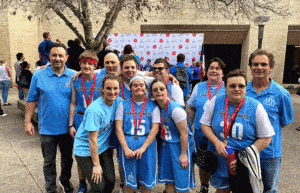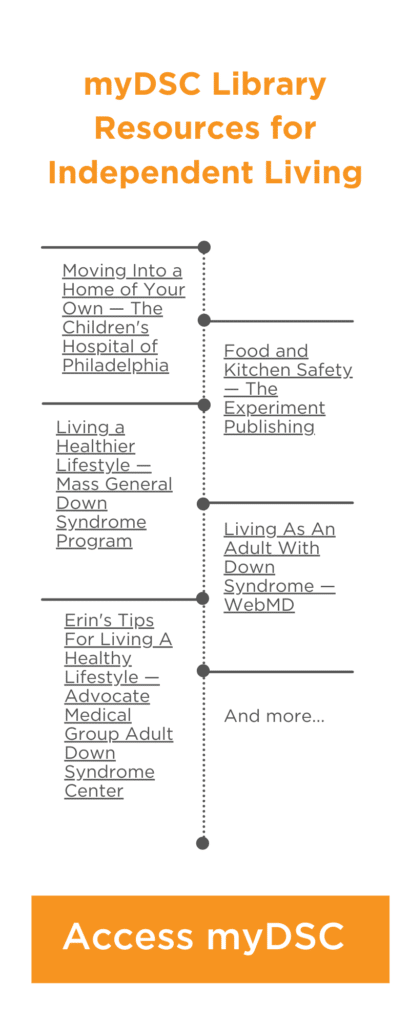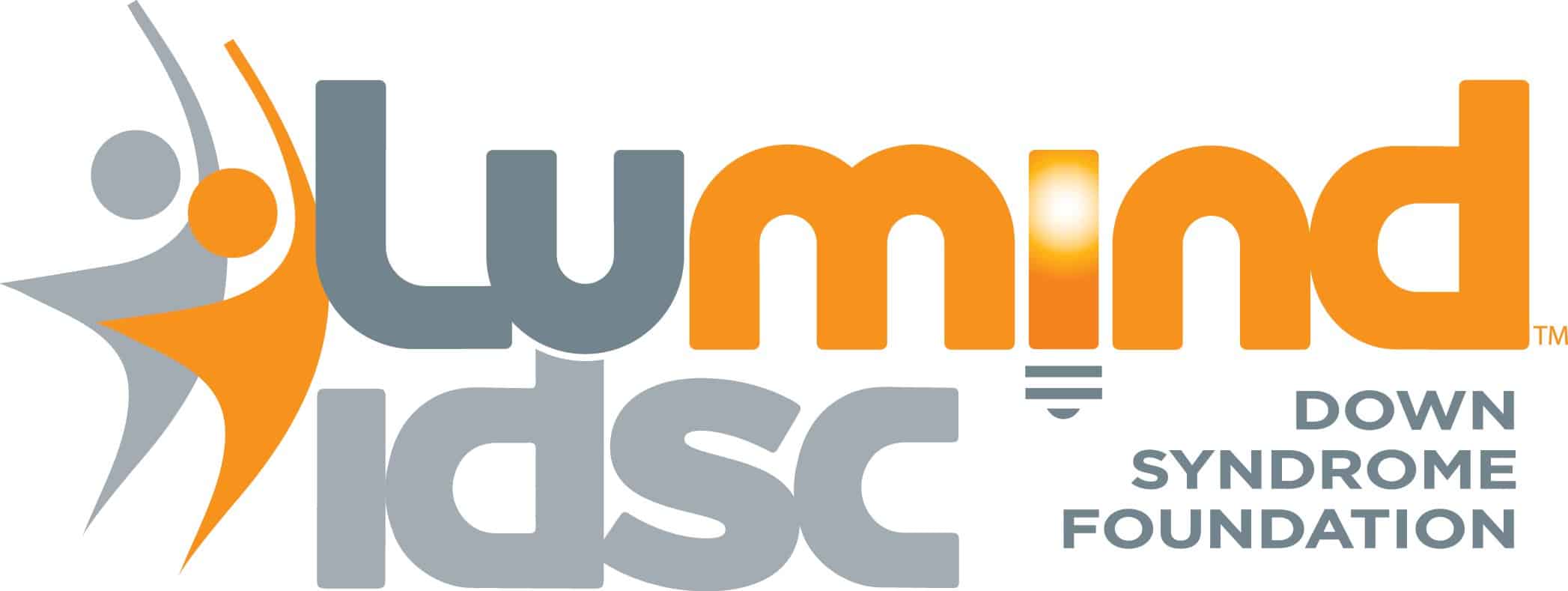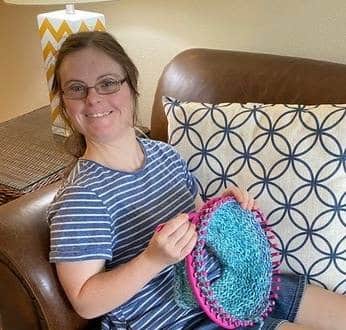 April 14, 2021
April 14, 2021
Ashley Sanchez was among the first to join the online platform myDSC (my Down Syndrome Community) in September 2020 because, she said, she saw its usefulness right away. For Ashley, a collection of Down syndrome resources from trusted experts for every stage of life would have been very helpful back when they were researching options for her adult daughter, Cristina.
“I love the collaboration I see in myDSC to help families like mine navigate the many resources out there,” Ashley said, “If I had the myDSC resource library then, it would have been a great place to start looking for information about independent living for Cristina.”
The Sanchez family recently shared their story as a way to inspire others, share information, and help defy society’s expectations of what life should be for an adult with Down syndrome.
When Cristina Sanchez was young, Ashley and her husband, Hector, had no idea what path her adult life would take.
As she became a teenager, they recognized that Cristina wanted what her sisters and any other young adult wanted – to move out, live on her own, and be the captain of her own life. They just had no idea how she was going to do it.
When Cristina was asked to describe how she felt about AIM and having her own place, she said:
 “AIM is fantastic and it’s brilliant! You can do chores, planning meals, getting meals at the store when it’s your night to do dinner, working out, checking mail, having your happy hour time, maybe go to the clubhouse, visit people or invite them over. It’s what we are and what we do.”
“AIM is fantastic and it’s brilliant! You can do chores, planning meals, getting meals at the store when it’s your night to do dinner, working out, checking mail, having your happy hour time, maybe go to the clubhouse, visit people or invite them over. It’s what we are and what we do.”
Growing up in Austin, Texas, Cristina was expected to learn to make her bed, put away her laundry, and make her lunch like her siblings, even if it took her longer to learn or complete. But living on her own, as she wanted to one day, involved so many other seemingly unattainable skills – budget management, house maintenance, managing unexpected challenges. They worried she didn’t have the math or negotiation skills she needed or that enough support services existed for adults with intellectual disabilities. Ashley and Hector didn’t know where to start to make it happen for Cristina or if they would ever be comfortable with it, but they were committed to try.
Throughout Cristina’s life, Ashley has been an info seeker, reading local Down syndrome newsletters, asking teachers, attending conferences, and Googling to find the information that would help Cristina grow and flourish. “I knew that somewhere out there, someone had figured it out and I was lucky enough that we could afford private resources and the time for me to provide some supports myself,” Ashley explained, “But what I learned with this independence project for Cristina is that it doesn’t have to look the same for everyone. When families of adults with intellectual disabilities work together, they can create a solution that works for them.”
Ashley’s journey started with a visit to the Mission Project in Mission, Kansas–a safe community that offers jobs, services, retail, entertainment, parks, and a community center, all within walking distance where people with developmental disabilities rent their own apartments, hold jobs, pay bills, and socialize with friends. She loved it for Cristina, but there wasn’t one in Austin, Texas and Cristina was not moving to Kansas.
Back home, Ashley reached out to other parents of adult children in her community that had similar goals and together, they created Adults Independent and Motivated (AIMTX.org) to help their young adults live independently, with appropriate support, in their own apartments.
“Our goal all along was to stitch together the supports that would make this living arrangement sustainable. We created bylaws, incorporated as a 501(c)(3), met regularly to form bonds among the parents and Prospective AIMers, and visited numerous apartment complexes throughout greater Austin before finding the one that would allow AIMers to walk to shops, restaurants, and entertainment,” Ashley said.
AIMers pay their own rent with wages they earn from their jobs, Social Security benefits, and sometimes help from their families. When families join AIM, they contribute or fundraise for purchases like a minivan to provide transportation and become a resource network for each other. They share best practices and tools, like LIFE 360, Facetime, Find My Phone, bank debit cards and other technology that maximize safety and independence for their children. AIMers are encouraged to have a family member or paid attendant work with them 3 hours per week. “Other than that, they each determine their own schedules and activities. I think parents are surprised by how independent they choose to be.”
On any given day, you may see an AIMer walking their dog, skateboarding, or visiting friends. Currently, there are 9 AIMers living in the complex and approximately 12 other prospective AIMers participating in AIM socials to see if it might be the right fit for them. “We know families in other communities are looking for resources like AIMTX and we are happy to share our journey with them. But I am happy that myDSC is there to quickly connect families with this and many other resources regardless of their location,” said Ashley. To apply to become an AIMer in Austin, Texas, visit www.aimtx.org.
If you are considering independent living for your loved one in your own community, get started with member resources at www.myDSC.org.


